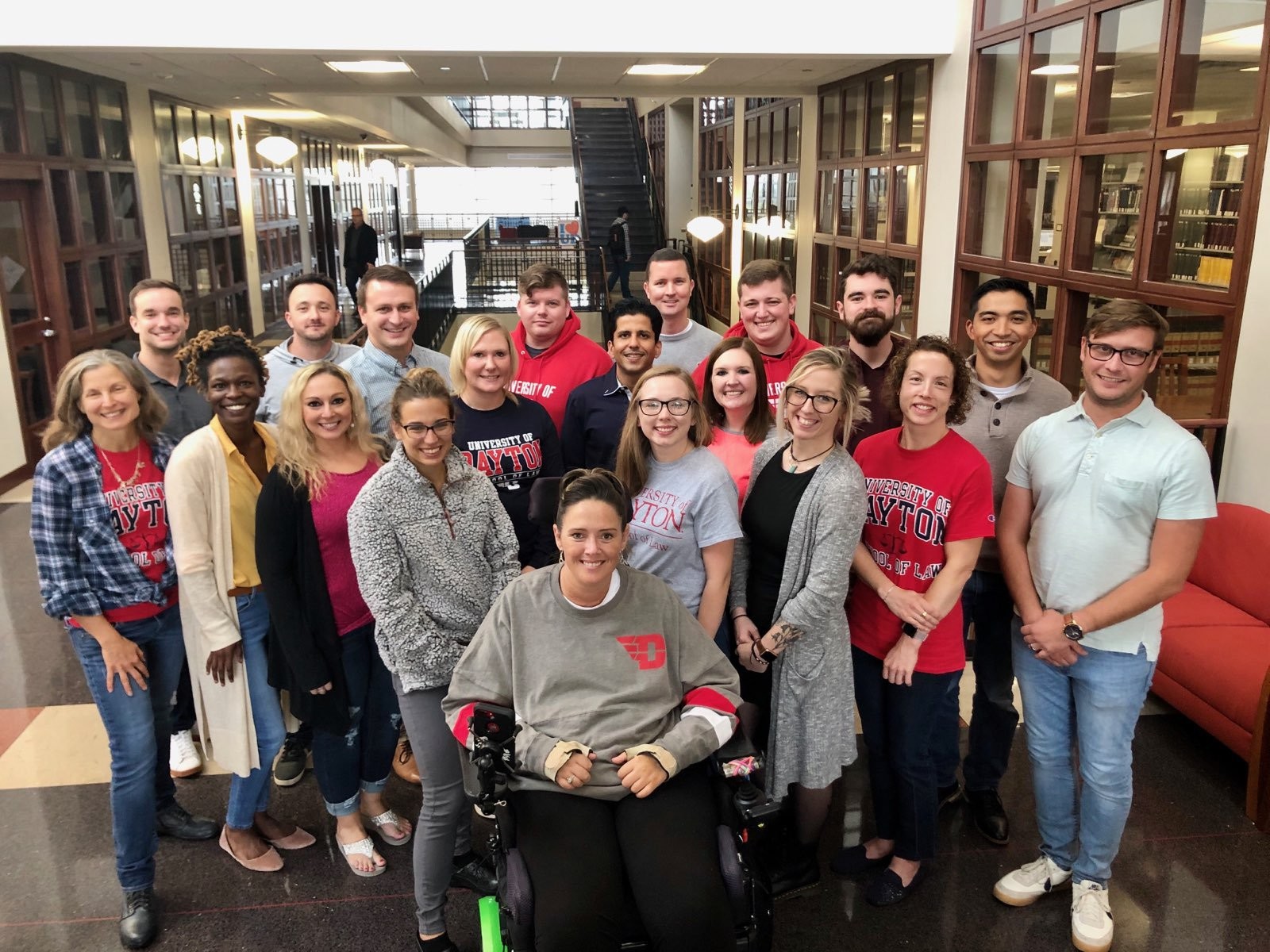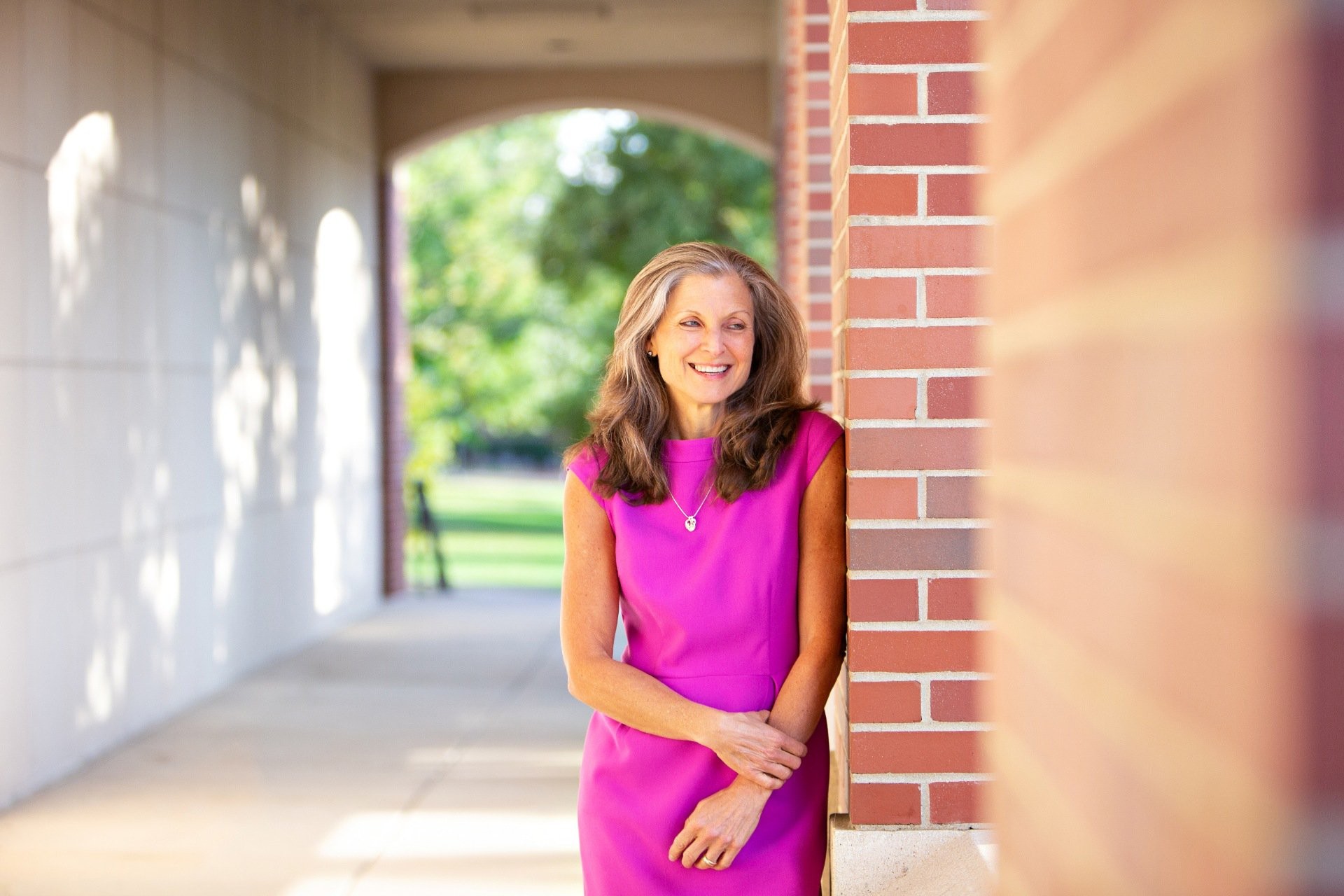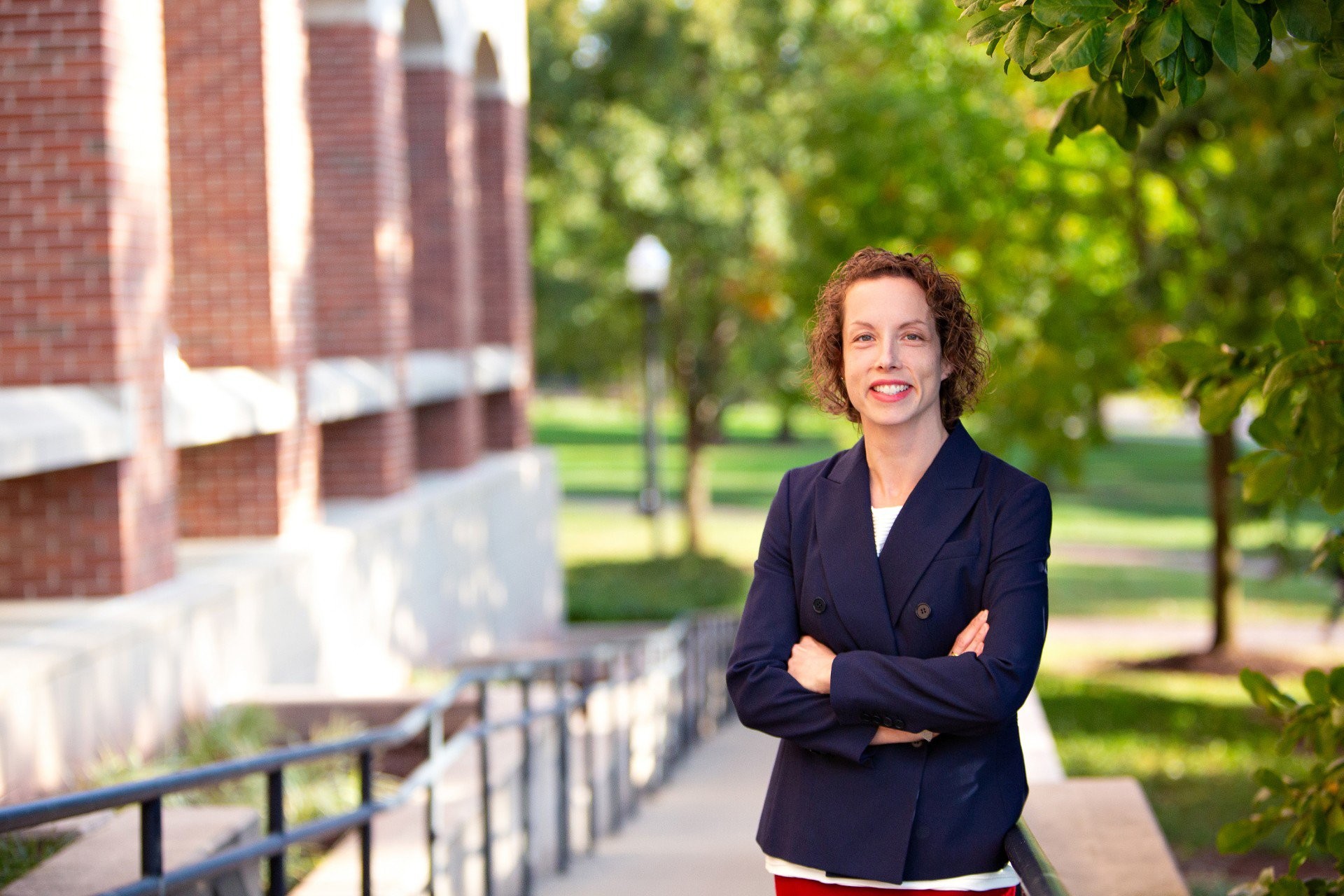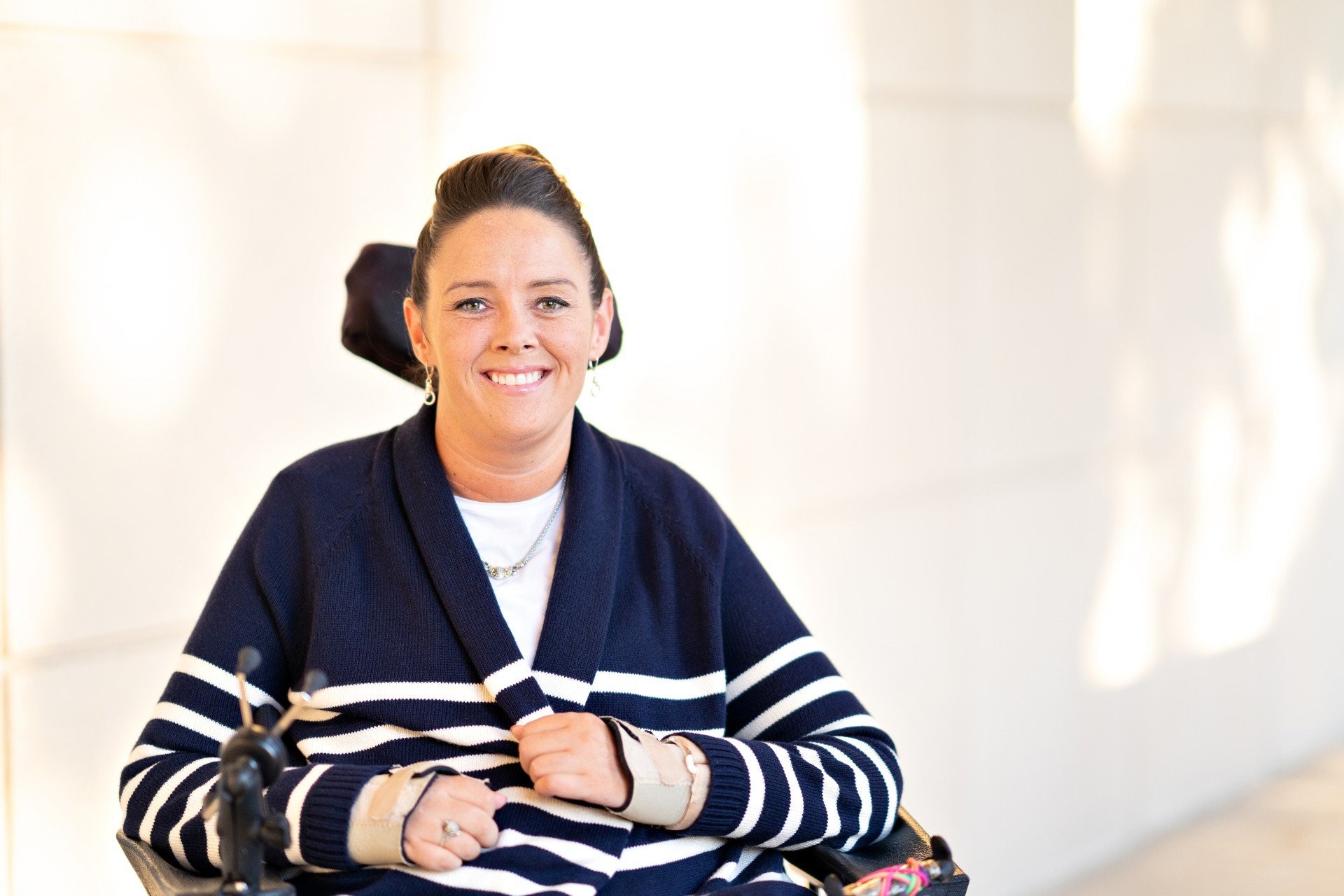Partner Spotlight
Through Hybrid Learning, the Law@Dayton Program Gives Students the Best of Both Worlds
Written by Stephen Eichinger on May 27, 2020
Related content: Graduate Programs

In April, Andrew Strauss, the dean of the University of Dayton School of Law, penned an op-ed describing the advantages of the University of Dayton’s online Juris Doctor program, Law@Dayton, powered by 2U, Inc. Among the benefits he praised was the program’s hybrid format, which blends online synchronous classes with asynchronous content and connects students physically to the law school with occasional week-long learning experiences on the Dayton Law campus.
As the inaugural Law@Dayton cohort finishes their first year in the program, we were interested in understanding the student perspective on the learning environment, their trips to campus, and any added value they see with the way the program is structured. Read on to learn what three students have to say about their hybrid law school experience.
Lea Bay
Georgia-based Lea Bay didn’t need much convincing that online learning could be both accessible and high-quality. Her two children are the products of the state’s accredited virtual school, and Lea served as their learning coach. Now an online student herself, Lea is experiencing many of the same advantages that she saw her children benefiting from, two of which are live class recordings and automatic transcription of those classes.
“I am able to access the recordings of previous live classes at any time, and I can put in a keyword for what I’m searching for and it takes me there,” she says. “I feel like this allows me to be more efficient and provides more resources at my fingers. I believe this gives me a leg up as an online student versus a residential law student.”

With the program’s asynchronous content, Lea feels very engaged with her learning, constantly “touching” the material, whether it’s through drafting a piece of writing the professor has asked her to prepare, posting her opinion to a discussion board, recording herself presenting a case brief or oral argument, or answering questions about the reading.
“I've heard some professors say that they feel like they're getting more interactions with us through the async materials than they do with their residential students,” she says.
Interacting with her law professors doesn’t happen only via live classes or through async assignments; Lea connects with them in-person through Get Relevant Experience and Applied Learning (Get REAL) weeks on campus. The first session launched last fall, and the schedule was jam-packed with activities that left Lea exhausted by nightfall but equally excited to get up for the next day. Lea and her classmates were treated to panels with lawyers from the community, projects in the law library, presentations from different student organizations they could join (even online), a lunch with the residential students and faculty members, and other events that made Lea and her classmates feel even more connected to the University of Dayton Law School.
“All the program aspects build bonds and connections with our professors, deans, and fellow students,” she says. “During Get REAL week, it felt like a whirlwind but after you leave the in-person experiences you realize that you are even more prepared to take on law school.”
Jen Fraley
When Jen Fraley decided that a law degree would help her advance in her higher education administration work, the very basic fact of her geography convinced her that an online J.D. was the only tenable option. Jen lives in Farmville, Virginia, a small town 90 minutes away from the nearest brick-and-mortar law school. With all her responsibilities, Jen knew she could not waste three hours of her day commuting to and from class.
Given the intensity of the Law@Dayton program, Jen is glad to have every spare moment to prepare. Legal education is known for its reliance on the Socratic method (a rapid-fire series of questions by the law professor that challenges the student’s critical and logical thinking), and in the online classroom, all students—not just one or two—are put to the test.
“There’s no hiding in an online Zoom class,” Jen says. “Our names are on the screen, and they call on all of us. ‘What are the facts in this case, Jen?’ ‘Lea, what was the rule?’ The professors don't have to search the aisles. They know if you're paying attention. It's very evident if you haven't done the reading. We can't not be prepared.”
While this approach can be nerve-wracking, Jen sees great value in the way the live classes are conducted. “Because we all have to put in the work and complete the assignments, I think that our discussions are so much more enriched, and we get to the heart of issues so much faster,” she says.

With so much regular face-to-face interaction with her professors and classmates, when it came time for Jen to meet the University of Dayton community in person during Get REAL, she felt as though she was meeting old friends.
“There were hugs all around,” she says. “We felt like coming to campus we already knew each other, so we were really just cementing our relationships.”
Jen appreciated the projects involving the physical resources of the law library, but at the same time she was proud to have already learned the online legal reference materials—WestLaw, for example—that are the main go-tos nowadays for all law students, whether they are on campus or online.
The Law@Dayton program includes a legal externship course, and even though this real-world component is two years away for Jen, she decided to meet with the career center while she was on campus to start putting plans into place.
“The support I have been receiving is great,” she says. “Everyone at Dayton has been responsive, engaged, and willing to answer my questions. They’ve done a really good job of making sure that we're integrated and connected to the UD community.”
Hogan VanSickle
Hogan VanSickle earned her master's degree through an in-person, residential program. For two years, she and her 34 classmates went to every class together. By graduation day however, she didn’t know much about them aside from their names.
Her experience in the hybrid Law@Dayton program could not be more different. The online classroom dynamic very quickly forged a bond that Hogan says “will last forever.”
"About a week after the semester began, one of my classmates started a WhatsApp chat group for everyone in the program. It gave us a forum to help each other find assignments and better understand concepts,” says Hogan. “More importantly, it allowed us to overcome the inevitable awkwardness of meeting each other for the first time. We were all in the same boat and ready for the ride of our lives."
Hogan is grateful for this group intimacy because her classmates lean on each other to succeed in what is a very rigorous academic program. Hogan describes her classmates and her "building strength through their collective struggle." She is quick to point out that "the program is nothing short of extraordinary; if it weren't so demanding, it wouldn't be worth it."
The program’s asynchronous materials are the lynchpin of the learning experience. The professor might assign 100 pages of reading and then supplement it with a pre-recorded lecture, a video of a legal roundtable, or an open-ended essay that Hogan and her classmates are evaluated on before the next live session.
Hogan estimates that she spends 20 to 30 hours on async material to prepare for the next week. "The entire platform has been professionally produced with searchable transcripts, instant notification of new grades or professor feedback, and a mobile app to listen to lectures on the go,” she says. “The UDSL online platform has allowed me to take control of my education on my terms."
The async material also helps the professor understand where the class needs to spend more time.
"After we've submitted all our asynchronous work, the professors can see a real-time snapshot of exactly where the class excels and where they need to focus more of their time during their live lecture that week," she says.

When Hogan traveled from her home in North Carolina to Ohio to meet her classmates in person for the first time, “it felt like a class reunion full of people who had known each other forever,” she says. “Instantally, people were hugging, laughing, and sharing personal stories. That closeness and familiarity naturally transition into the digital classroom.”
The online environment allows Hogan and her classmates to engage in the same type of study groups that are integral to any law school experience, with added benefits. “Planned study sessions and impromptu virtual meetings allow us to benefit from face-to-face interaction, with the added convenience of being able to conduct them from anywhere,” she says.
And it’s not just her peers who are flexible with their time. "I even had a professor attend a final exam cram session at 11 p.m. because we were stuck debating the application of a law,” she says.
While Hogan was initially hesitant to attend a university with a hybrid J.D. degree program—for fear of missing out on the “quintessential law school experience”—she is confident now that she is receiving a higher-quality education because of the flexibility and customization that an interactive law school experience can provide.
"This program has been the perfect fit for me, and it has been a privilege to be a part of such an extraordinary group of faculty, staff, and fellow students all striving to make this inaugural hybrid J.D. class at the University of Dayton nothing short of legendary,” Hogan says. “Go Flyers!”
Latest.
Learn more about us.
At 2U, we’re on a mission—to eliminate the back row in higher education and help universities thrive in the digital age. To learn more about who we are and what we do, follow the links below.